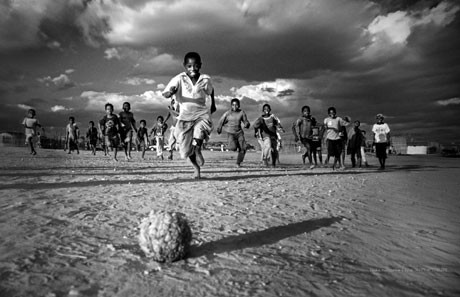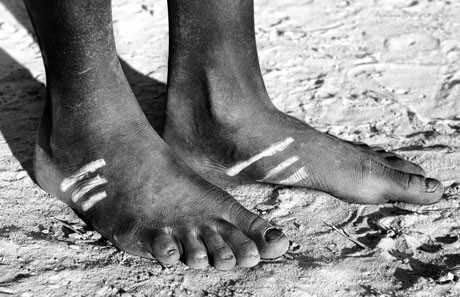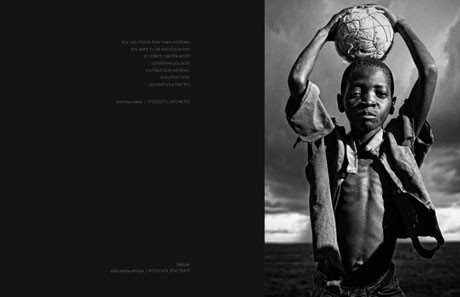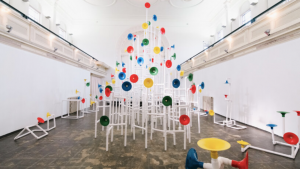From Addis Ababa in Ethiopia to Gulu in Uganda and Pemba Island in Tanzania, Robin Goode, Matteo Bottanelli and Kabir Javier crossed Africa on their motorbikes, stopping only to capture the football culture in many almost-forsaken villages. Football Muti, a black-and-white coffee table book is the product of their journey.
They share some of their experiences and thoughts about the locals: “A ball is as interesting as an old man’s face; you can see a lot of good memories etched into them,” or “his fiery defiance mesmerised me; he is from a tribe whose culture is dying”.
The photographs capture the roughness and harshness of a rough African terrain but also of the tough reality of millions of people. The pictures of the children, barefoot and scantily clothed, are particularly poignant.
The exact geographic location of each photograph is included, creating a sense of universality in forgotten communities. Soccer is more than a game in these communities and the photographs express some parts of the bigger meaning of this pastime. These people are not deterred by their lack of a ball, shoes or goalposts. The improvisations for a ball, using all kinds of found materials, are both funny and sad.
Published by Jacana, the project aims to raise money for much-needed medicine for children’s charities.
From Addis Ababa in Ethiopia to Gulu in Uganda and Pemba Island in Tanzania, Robin Goode, Matteo Bottanelli and Kabir Javier crossed Africa on their motorbikes, stopping only to capture the football culture in many almost-forsaken villages. Football Muti, a black and white coffee table book is, is the product of their journey.
They shares some of their experiences and thoughts of the locals: “A ball is as interesting as an old man’s face you can see a lot of good memories etched into them,” or “his fiery defiance mesmerized me he is from a tribe whose culture is dying”.
The photographs capture the roughness and harshness of a rough African terrain but also of the tough reality of millions of people. The pictures of the children, barefoot and scantily clothed, are particularly poignant.
The exact geographic location of each photograph is included, creating a sense of universality in forgotten communities. Soccer is more than a game in these communities and the photographs express some parts of the bigger meaning of this pastime. These people are not deterred by their lack of a ball, shoes or goalposts. The improvisations for a ball, using all kinds of found materials, are both funny and sad.
Published by Jacana, the project aims to raise money for much-needed medicine for children’s charities.










